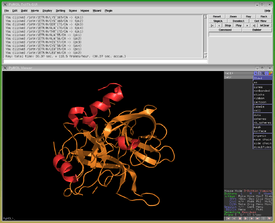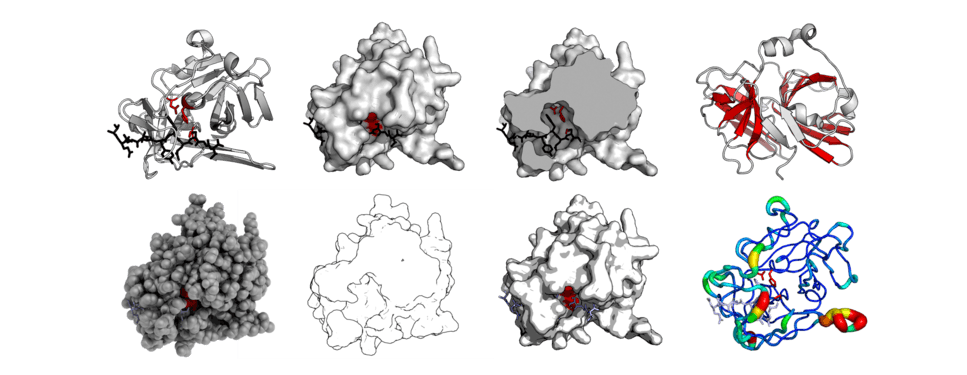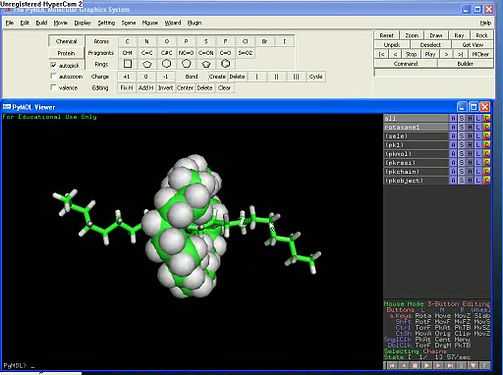PyMOL
 A PyMOL instance, with the Viewer and GUI visible. | |
| Developer(s) | Schrödinger, Inc. |
|---|---|
| Stable release | 1.7.0.0 / 14 January 2014 |
| Preview release | 1.6.0 / 27 March 2013 |
| Written in | C, C++ and Python |
| Operating system | Cross-platform |
| Type | Molecular modelling |
| License | Python license[1] |
| Website | pymol.org |
PyMOL is an open-source, user-sponsored, molecular visualization system created by Warren Lyford DeLano and commercialized by DeLano Scientific LLC, which is a private software company dedicated to creating useful tools that become universally accessible to scientific and educational communities. It can produce high-quality 3D images of small molecules and biological macromolecules, such as proteins. According to the author, almost a quarter of all published images of 3D protein structures in the scientific literature were made using PyMOL.[citation needed]
PyMOL is one of a few open-source visualization tools available for use in structural biology. The Py portion of the software's name refers to the fact that it extends, and is extensible by the Python programming language.
Non-free binaries
On 1 August 2006, DeLano Scientific adopted a controlled-access download system for pre-compiled PyMOL builds (including betas) distributed by the company. Access to these executables is now limited to paying customers but is free for students and teachers. However, the current source code continues to be available at no cost, as are older pre-compiled builds. While the build systems for other platforms are open, the win32 build system is not. Non-students and teachers can either compile an executable from the source code or pay for a subscription to the support services to obtain access to pre-compiled executables.
Pre-compiled window binaries of PyMOL is also available free from Christoph Gohlke of the Laboratory for Fluorescence Dynamics, University of California, Irvine here.
Acquisition of PyMOL by Schrödinger
On 8 January 2010, Schrödinger, Inc. reached an agreement to acquire PyMOL. Schrödinger took over development and maintenance, as well as support and sales of PyMOL, including all current subscriptions. Schrödinger also continues to actively support the open-source community of PyMOL.
Gallery
-

The same protein structure (TEV protease 1lvb) rendered in different modes. Standard cartoon, surface, cut-through of surface, highlighted barrels, 'QuteMol'-like, 'Goodsell'-like, b-factor putty
See also
- Gabedit
- List of molecular graphics systems
- List of web resources for visualizing molecular dynamics
- Molden
- Molekel
- Molecular modelling
- Software for molecular mechanics modeling
References
External links
| Wikimedia Commons has media related to Created with PyMol. |
